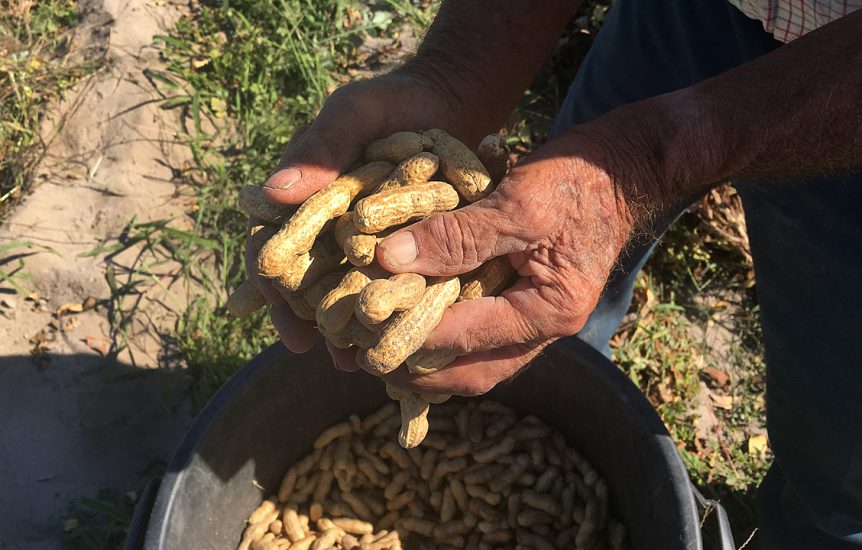- No products in the cart.
lthough we live by the sea, the Algarve region is rich in customs related to land and agriculture. Now it’s time for the peanut harvest, and Mar d’Estórias is focused on the whole process associated with the cultivation of the “alcagoita” as it is called here.
The four-month plantation begins in May when the dried peanuts are sown in the land. This is how the brothers, José João, better known as Zé Pataco, and Armindo de Jesus do Vale Juncal, who are 81 and 85 years old, respectively still cultivate their land with peanuts for their own consumption and to sell in the market.
As we pass Rogil and turn to Barradinha beach, we can see a piece of land where the small branches bloom. Peanuts don’t grow in trees, however, from a distance their branches may be mistaken for pea plantations. They grow in poor soils and are picked out of the earth like carrots, then left to dry in the sun for about a week. Zé Pataco comments that “in the old days the harvest only began after 25th September, between the Aljezur and São Miguel Fairs” and that even today it isn’t necessary for the branch to dry up so that the harvest can begin. Here, the lands are respected: “the rules are set by the land. I watered almost a little too less … here I did 12 days of watering. ”
Nowadays the harvest continues to be done manually. Mornings and afternoons are spent on the separation of each plant from the peanut and then the peanuts are sun-dried. However, Armindo states that “in the old times a wicker basket with handles was used. A stick was placed across the handles, a bag was put in their tips and the branch was beaten until the peanuts fall into the bag. Which means the method is still traditional and not very different from the early days.
The peanut is, for us Portuguese, much appreciated to accompany a beer among friends. Nevertheless, it’s a natural product that combines numerous health benefits as it is a source of fiber and energy, helps satiety, and is rich in omega-3 which promotes the reduction of inflammation, protects against heart disease and helps bowel function.
We want to share the diversity of the Algarve culture and the benefits of peanuts, so we have roasted peanuts and local peanut butter available. Whenever possible, Chef Megan uses this ingredient in her desserts, as is the case with the delicious Alcagoita de Aljezur that consists of peanut bonbons, chocolate and banana ice cream from Madeira. We invite you to visit Mar d’Estórias where local peanuts have a highlighted and well-deserved place.

